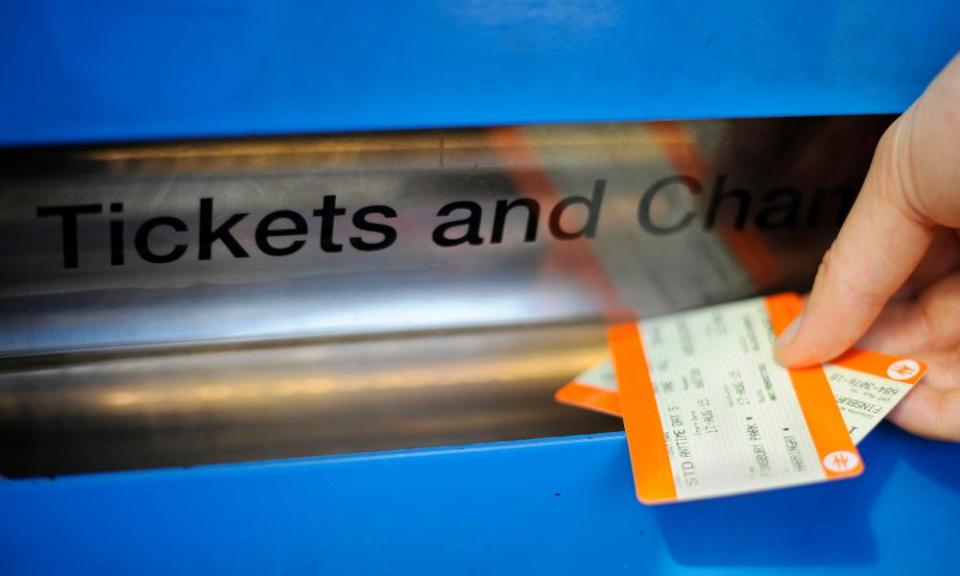UK inflation tipped to rise again with wages forecast to stagnate

The squeeze on cash-strapped British households is expected to be illustrated this week byofficial figures likely to show that inflation picked up last month, outstripping growth in pay packets.
City economists are forecasting that the consumer price index (CPI) rose at an annual rate of 2.7% in July, up from 2.6% in June. The figures will be released by the Office for National Statistics (ONS) on Tuesday, followed by labour market data the next day which are expected to show wage growth stagnated while unemployment continued to fall.
Inflation is expected to resume its upward path following June’s surprise slowdown, when weaker global oil prices pushed down the cost of petrol and diesel, providing some respite for consumers. However, in May, inflation had hit a four-year high of 2.9%.
Coupled with low pay growth, the rising cost of living means real wages are falling, heaping pressure on households. Consumers are using their credit cards to fund spending and the Bank of England has expressed alarm about the increase in personal debt.
Tuesday’s update from the ONS will bring important news for commuters because July’s retail price index (RPI) will be used to calculate rail fares for the year ahead. RPI, a separate inflation measure, is expected to have risen at an annual rate of 3.5% in July, the same rate as in June.
Inflation has remained well above the Bank of England’s 2% target – measured against CPI – after starting to rise last year following the Brexit vote, which triggered a sharp drop in the value of the pound and pushed up the cost of goods imported from abroad. Inflation was just 0.3% in May 2016, a month before the referendum.
Analysts are pointing to higher utility prices in July, following gas and electricity tariff hikes by EDF in late June, while food and furniture prices have risen steadily on the back of the fall in sterling.
Philip Shaw, the chief economist at Investec, pointed to a further fall in petrol prices and the abolition of mobile phone roaming charges across the EU in mid-June as keeping inflation in check. He forecasts inflation will stick at 2.6% in July, before rising gently in coming months to 3%.
Alan Clarke, the head of European fixed income strategy at Scotiabank, is predicting inflation of 2.8%, partly due to food prices which have been rising in recent months in sharp contrast to this time last year, when the supermarket price war was still raging.
He said: “Food price falls came to a fairly abrupt end in the aftermath of the Brexit vote, particularly on the back of the sharp fall in the exchange rate. Indeed, food prices have risen for seven of the last eight months – with last month being the exception.
“Overall, we view last month’s downward adjustment in inflation as temporary and the peak in inflation is yet to be reached.”
The Bank of England is predicting inflation will reach a peak of 3% in October.
In its latest predictions for the UK economy published last week, the central bank raised its inflation forecasts for the months ahead and cut the growth outlook for this year and next. It also downgraded its predictions for wage growth, as it warned that uncertainty surrounding Brexit had discouraged some firms from awarding pay rises.
Wage growth has been lagging behind price rises and this is expected to continue in coming months. Economists are predicting that average weekly earnings grew by 1.8% year-on-year in the three months to June, the same figure as last time, with regular pay stripping out bonuses similarly static at 2%.
Despite a slowdown in UK economic growth this year, unemployment has been falling. The jobless rate is forecast to have dipped to 4.4% in the three months to June from 4.5%. Shaw said: “At some stage, we expect employment to slow and the jobless rate to nudge up. But for now, other survey evidence suggests continued forward momentum.”
Basic pay rises in the UK are expected to come in at 1% in the third quarter, a survey of more than 1,000 employers predicts.
The report from the Chartered Institute of Personnel and Development and the Adecco Group also suggests that employment will grow again strongly. The balance of employers who expect to increase staff levels and those who plan to reduce them between July and September shows an increase from +20 to +27 during the past three months.
However, while the labour market remains buoyant, basic pay award expectations for the next 12 months remain at just 1%, down from average pay deals of 1.5% in the first half of the year. Factors include poor productivity growth and an influx of EU workers, ex-welfare claimants and 50- to 64-year-olds into the workforce. However, future migration trends appear highly uncertain, the report said.
Almost a quarter of private sector firms cite delivering the national living wage as a brake on pay growth; a fifth cite uncertainty over access to the single market, and another fifth point to the government’s auto-enrolment pensions scheme as a challenge. In the public sector, nearly three-quarters of employers say that government-imposed pay restraint is why they cannot match the inflation target of 2% in their next pay award.
Pay expectations among employees have also weakened from last year.

 Yahoo Finance
Yahoo Finance 